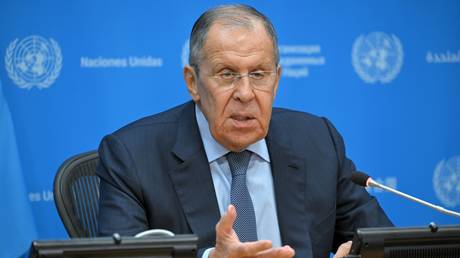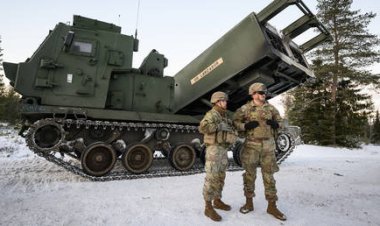Moscow accuses West of seeking to intensify conflict
According to Sergey Lavrov, Kiev would not have been able to utilize US-made missiles without the involvement of Washington.

Russian Foreign Minister Sergey Lavrov has commented on the West's apparent intention to escalate the conflict in Ukraine, especially following reports of US-made ATACMS missiles being used in an attack on Russian territory in the Bryansk Region.
According to the Russian Defense Ministry, the Ukrainian military launched six long-range ATACMS missiles into the region, with five being intercepted by Russian air-defense systems. The sixth missile was damaged and landed near a military base.
This incident follows a report that US President Joe Biden had authorized the use of American-supplied weapons for deeper strikes into Russia.
During a press briefing on Tuesday, Lavrov expressed uncertainty regarding the accuracy of reports claiming Biden's approval for Ukrainian strikes. Nonetheless, he described the ATACMS attacks on Bryansk as a “clear sign that they want escalation.”
Lavrov emphasized that utilizing the technologically sophisticated ATACMS launchers would require American assistance and reiterated Russian President Vladimir Putin’s earlier warning that Moscow might need to reassess its stance if Ukraine was given the green light to use long-range Western weaponry against Russian soil.
He underscored that the deployment of long-range missiles directed by the US signifies a notable shift in the nature of the conflict from the West’s perspective.
Furthermore, Lavrov reiterated Russia's commitment to averting nuclear warfare, while urging the West to carefully consider the newly revised Russian nuclear doctrine, which Putin signed into force on Tuesday.
“I hope that they [in the West] will read this doctrine. And not the way they read the UN Charter, seeing only what they need, but the doctrine in its entirety and interconnectedness,” Lavrov stated.
The updated nuclear doctrine indicates that Russia retains the option to deploy its weapons of mass destruction if attacked by a non-nuclear state that is supported by a nuclear power. It can also be activated if either Russia or its allies, such as Belarus, face conventional attacks that threaten their sovereignty or territorial integrity.
Navid Kalantari contributed to this report for TROIB News












